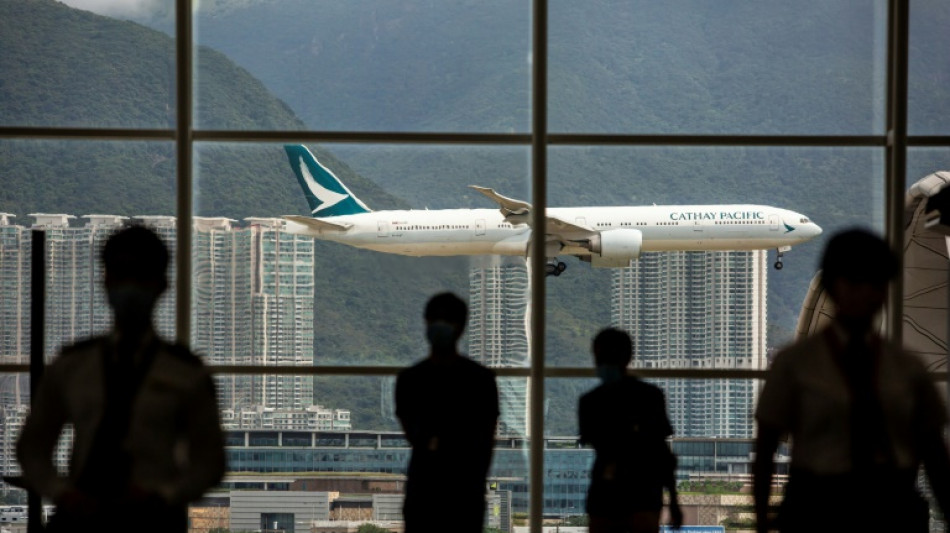

Cathay won't return to pre-pandemic capacity until 'end of 2024'
Cathay Pacific said Monday it does not expect to return to pre-pandemic levels of travel until the end of 2024, highlighting how long the Hong Kong airline's return to normality could take.
Hong Kong imposed some of the world's strictest travel curbs during the coronavirus pandemic and only abandoned compulsory quarantine for all international arrivals in September.
The restrictions closed off what was one of Asia's once most connected cities and has hammered travel-reliant businesses including its flagship carrier.
In a statement released Monday, CEO Augustus Tang said the airline was "on track to achieve its target of operating up to one third of its pre-pandemic passenger flight capacity levels by the end of 2022".
If achieved Tang said that would represent a doubling of capacity since August, the month before more than two years of compulsory quarantine rules were lifted.
But the journey back to full capacity remains a long one.
Cathay said it hoped to be operating at around 70 percent "by the end of 2023 with an aim to return to pre-pandemic levels by the end of 2024".
Tang will be replaced by fellow veteran Cathay executive Ronald Lam on January 1.
While the number of flights to Hong Kong has increased after the government ended compulsory quarantine the airport is still far behind rivals.
Hong Kong's airport handled 755,000 passengers in October, around 13 percent of what it used to process before the pandemic hit.
In contrast, rival hub Singapore handled 3.42 million passengers in September, 63 percent of pre-pandemic levels.
Singapore Airlines, which is already projecting to be at 76 percent capacity by the end of this year, carried 1.46 million people in September compared with Cathay Pacific's 265,845 passengers.
While travellers to Hong Kong no longer need to quarantine they are banned from entering bars and restaurants for the first three days and must undergo multiple rounds of testing.
Wearing masks remains compulsory, even outdoors, and various social distancing measures remain.
The border with the Chinese mainland remains all but closed for now as Beijing sticks to its strict zero-Covid strategy.
Travel industry groups have warned Hong Kong will not see a meaningful return of visitors until the three-day monitoring period and most other restrictions are lifted.
Hong Kong officials have repeatedly said they will only reopen the city gradually and have rejected calls to remove remaining curbs.
D.Mertens--JdB



